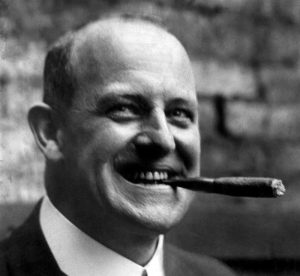Sir P.G. Wodehouse

Early Life of Wodehouse
Wodehouse was educated at Dulwich College, London. He worked for a while in a bank, but was not really satisfied with it. After his short lived banking career, he took a job as a humorous columnist on the London Globe. There, he wrote freelance for many other publications. After the year 1909, he lived and worked for long periods in both the United States and in France.
Unfortunately, Wodehouse was captured in France by the Germans in 1940 and spent much of the war trapped in Berlin. In 1941 he made five radio broadcasts from there to the United States. The Germans resented him for turning his period of capture into hilarious anecdotes but that did not matter to him. He proved to be a good satirist and infused satire into light-hearted comedy, which was about the war. After the war was over, he settled in the United States, and become a citizen in 1955. He was knighted in 1975.
Writing Career of P.G. Wodehouse
Wodehouse worked obsessively on his books, and sometimes had two or more in preparation simultaneously. He took up a large amount of time to construct a plot and wrote about more than twenty thousand words, pertaining only to plot. After that was done, he proceeded to write the story. He started to write public-school stories and light romances and then proceeded to write satire. In 1913, he published his first book titled, ‘Something New’.
This was the first of his novels that proceeded to establish him as an excellent writer of satire. Wodehouse had a superb and scholarly command over English, and he delighted audiences with his use of hyperbolic imagery and subtle slang. Although his plots were highly complicated, the intellectual British humour never failed to make a mark. Early in his career, because of his tendency to work on multiple books, he would produce a novel in about three months. But, later in his old age, he slowed to around six months. ‘Jeeves’ was a character set in the late Edwardian period, which he was very careful to keep in mind, keeping the authenticity of the era and language intact.
Which is why, he used a mixture of Edwardian slang, quotations from and allusions to numerous poets, and several literary techniques and in turn, produced a style of writing to produce a prose style that has been compared with comic poetry and musical comedy.